第7章
Year by year, month by month, and almost hour by hour, this change is increasingly showing itself in the field of the modern labour; and crude muscular force, whether in man or beast, sinks continually in its value in the world of human toil; while intellectual power, virility, and activity, and that culture which leads to the mastery of the inanimate forces of nature, to the invention of machinery, and to that delicate manipulative skill often required in guiding it, becomes ever of greater and greater importance to the race.Already today we tremble on the verge of a discovery, which may come tomorrow or the next day, when, through the attainment of a simple and cheap method of controlling some widely diffused, everywhere accessible, natural force (such, for instance, as the force of the great tidal wave) there will at once and for ever pass away even that comparatively small value which still, in our present stage of material civilisation, clings to the expenditure of mere crude, mechanical, human energy; and the creature, however physically powerful, who can merely pull, push, and lift, much after the manner of a machine, will have no further value in the field of human labour.
Therefore, even today, we find that wherever that condition which we call modern civilisation prevails, and in proportion as it tends to prevail--wherever steam-power, electricity, or the forces of wind and water, are compelled by man's intellectual activity to act as the motor-powers in the accomplishment of human toil, wherever the delicate adaptions of scientifically constructed machinery are taking the place of the simple manipulation of the human hand--there has arisen, all the world over, a large body of males who find that their ancient fields of labour have slipped or are slipping from them, and who discover that the modern world has no place or need for them.At the gates of our dockyards, in our streets, and in our fields, are to be found everywhere, in proportion as modern civilisation is really dominant, men whose bulk and mere animal strength would have made them as warriors invaluable members of any primitive community, and who would have been valuable even in any simpler civilisation than our own, as machines of toil; but who, owing to lack of intellectual or delicate manual training, have now no form of labour to offer society which it stands really in need of, and who therefore tend to form our Great Male Unemployed--a body which finds the only powers it possesses so little needed by its fellows that, in return for its intensest physical labour, it hardly earns the poorest sustenance.The material conditions of life have been rapidly modified, and the man has not been modified with them; machinery has largely filled his place in his old field of labour, and he has found no new one.
It is from these men, men who, viewed from the broad humanitarian standpoint, are often of the most lovable and interesting type, and who might in a simpler state of society, where physical force was the dominating factor, have been the heroes, leaders, and chiefs of their people, that there arises in the modern world the bitter cry of the male unemployed: "Give us labour or we die!" (The problem of the unemployed male is, of course, not nearly so modern as that of the unemployed female.
It may be said in England to have taken its rise in almost its present form as early as the fifteenth century, when economic changes began to sever the agricultural labourer from the land, and rob him of his ancient forms of social toil.Still, in its most acute form, it may be called a modern problem.)Yet it is only upon one, and a comparatively small, section of the males of the modern civilised world that these changes in the material conditions of life have told in such fashion as to take all useful occupation from them and render them wholly or partly worthless to society.If the modern man's field of labour has contracted at one end (the physical), at the other (the intellectual) it has immeasurably expanded! If machinery and the command of inanimate motor-forces have rendered of comparatively little value the male's mere physical motor-power, the demand upon his intellectual faculties, the call for the expenditure of nervous energy, and the exercise of delicate manipulative skill in the labour of human life, have immeasurably increased.